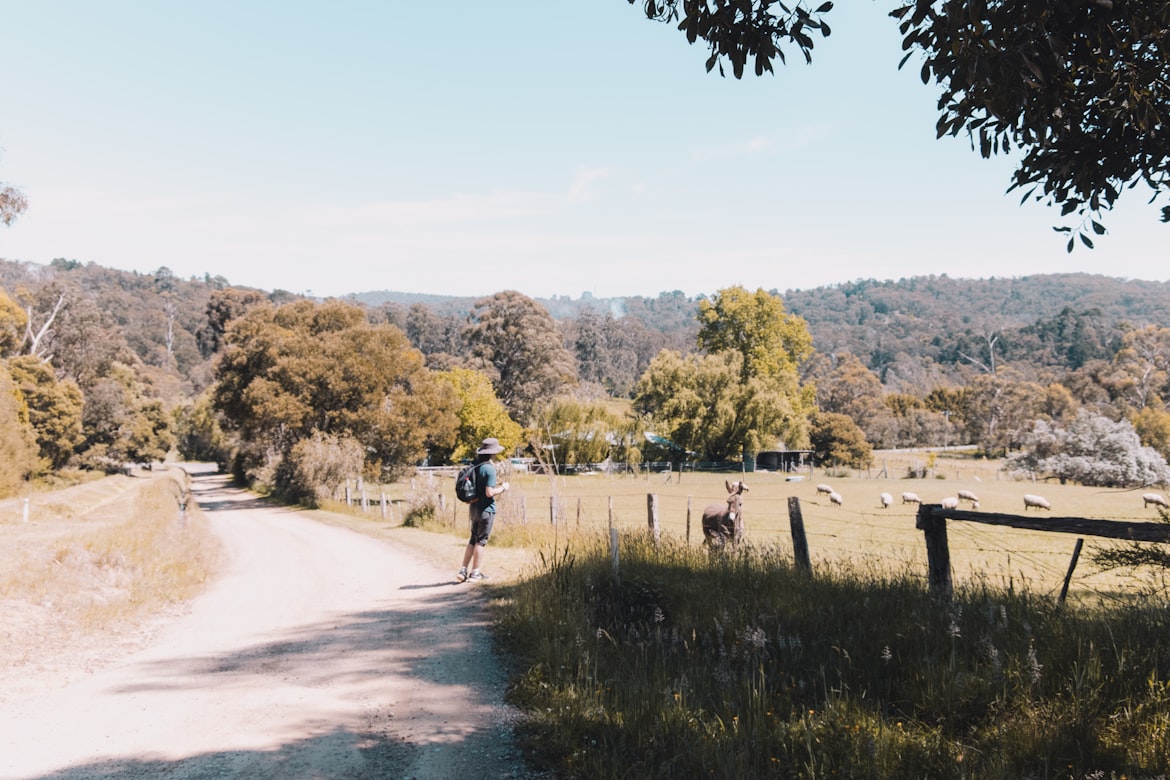How to start a farm is the most common question for those aspiring people who want to engage in a farm business. And it is rightly so because the most vital industry today is farming. Besides producing nutritious food, farms provide us with various other things we use and eat daily. We can also use farms for recreation or pleasure.
In the last century, the farming industry has changed dramatically. Even if you were not born into a farming family, starting a farm business has been more common in recent years. We’ll go over how to create a profitable farm in this article. We’ll also go over key details like the different farm techniques and how new farmers overcome daily farm problems. We’re about to enter the realm of farming, so put on your work boots and grab your pitchfork!
You’ve cleared the biggest hurdle if you’ve breezed through the top 5 farm management strategies criteria to success. So, what does it take to start a prosperous little farm? Right land, loans, business plans, finances, and farmers.
Short Summary
Define the Right Land
You’ll need to select whether to buy or lease land once you’ve decided what you’re going to cultivate. Purchasing land means that you have complete control over their usage, but you will also incur financial risk for the success of your business. One of the main reasons leasing property is the most well-known option for many novice farmers is this. It reduces financial risk and requires less capital upfront.
Determining what your farm business will be is vital to get started. Do you want to start your micro-vegetable farm? Do you intend to grow hay for other farmers on a large scale? Perhaps you’d like to start a diversified farm, a modest operation that raises a mix of animals and crops. You might even be considering how to develop an ecotourism farm, where visitors can stay and learn how your farm operates, possibly even helping out with agricultural chores.
Things to remember when choosing the right land:
It’s worth familiarizing yourself with the items you’ll need to consider while exploring before finding the ideal people to help you buy land. Some of these are advisable, and include:
- Neighbors
Depending on the situation, they can be a wonderful help or a huge impediment. Do they make farm products? What are their methods of production? Are they a good match for yours? If you want to develop an organic vegetable farm, but your neighbors want to use pesticides and herbicides, it could affect your success.
- Soil Quality
Like water, most farmers require high-quality soil. Buyers should expect reports from vendors, and soil tests are frequently accessible through the local extension department.
- Water Supply
It is important to have a stable and constant water supply, so make sure you ask many questions and consider your options. Your plants, animals, irrigation, and processing needs water, but what kind of water will you provide to them?
- Environmental Infrastructure
Different outbuildings may be required depending on the type of farm you want. A vegetable stand or farm shop may necessitate a capital outlay. What about your animals? Is there a place on the property where you can keep the animals you wish to raise? What about the processing plants? There’s a difference between processing and storage facilities on crops and animal products.
- Market Proximity
Consider where you’ll sell your products or how you’ll access sales channels based on your proximity to markets. You’ll have a lot more trouble getting to market if they’re hundreds of miles away. It’s often easier to start small and expand from there.
Loans
You may not have the necessary funds to begin farming on your desired size. You can start small, dip your toe in the water, and see how you like farming on a modest scale, investing whatever money you have left over from the monthly household budget on a farm. However, because it may not invest a considerable amount of money in bringing a product to market, it may take a long time to go anywhere using this strategy. There are grants and loans available for young and beginning farmers. Established farmers can also get assistance. Subsidized equipment, such as high tunnels and support with organic certification, are available through several programs.
Business Plan
You might be wondering if a business plan is necessary. Creating a business plan is the most important thing if you want to establish a business. When drafting a business plan, you’ll think about markets, supply, and demand, as well as your financial analyses, farm management structure, operations, price points, and products. Because this and the preceding stage, designing, and planning, are linked, you can cycle between them. On the other hand, curiosity on how to start a farm business is an important enough aspect of beginning a firm to warrant its step.
Finances
Like any other small business, raising capital is needed to get started. A significant amount of overhead is what a small farm business is all about. You’ll need land, machinery, labor, insurance, license, among other things. Farmers can also purchase a functional farm, although this requires a significant amount of funds to get started. It is estimated that starting a small farm can cost up to $10,000.
On the other hand, a commercial farm can cost millions of dollars to start. You can fund a small farm in a variety of ways. If you have the cash, buying it in cash is the simplest option. There are alternative ways to make your idea a reality if you don’t have millions of dollars in your account savings.
Farmers
Who should work on a farm? Of course, a person who can make this work has already been introduced, and they’re called farmers.
There are only a few specific needs. New farmers must be dedicated, observant, focused, open to new ideas, and eager to learn. Because a successful small farm operation relies heavily on friendly, positive client connections, at least one member of your team should have good “people skills.” We sometimes joke about starting a farm business when we were 45 and 42 years old. However, age is just a factor in some cases. If they were fit, there wasn’t much development work to do, and they were generally prepared, a couple should take over a well-established firm in their middle or later years.
At the other end of the period scope, 20-30, there’s a risk in taking on something so demanding before having a diverse range of life experiences – not being ready to leave the rat race and truly settle in. Many of us consider a haven may appear, but to others? It’s going to be jail!
Final Thoughts
There are numerous approaches to planning a farm. Every farmer’s business journey will be unique, which is perfectly fine. However, the 5 phases we’ve covered on how to start a farm from the ground up are a terrific place to begin. It’s a good starting point for farmers who are new to the scene and want to learn how to farm.
Now that you have all of the information you need to begin your farming career, it’s time to get started. Are you ready to have some dirt in your hands and start farming?





